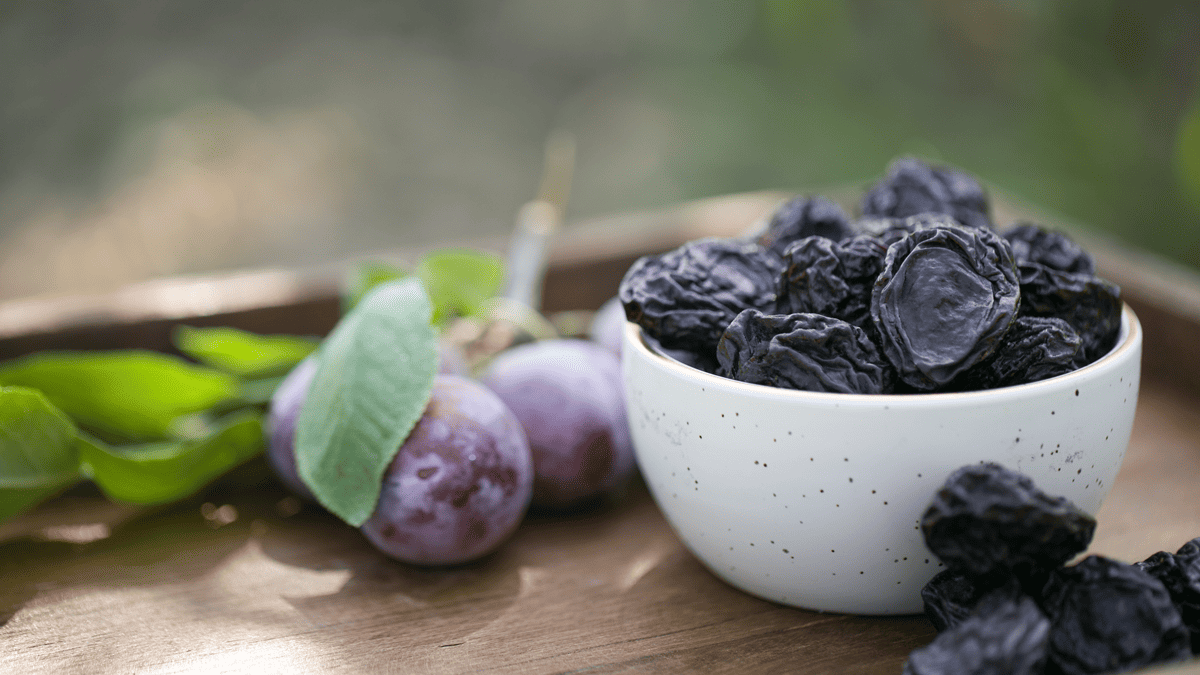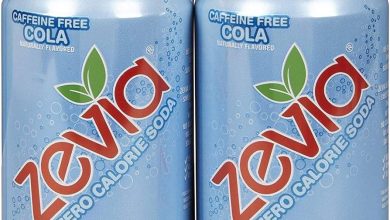Dehydrated Prunes (Low-Moisture, Uncooked)
Dehydrated prunes, often referred to as dried plums, are a concentrated source of nutrition and flavor. These prunes undergo a dehydration process that removes moisture, making them lightweight and shelf-stable while retaining most of their nutritional benefits. Typically used as a natural sweetener in recipes or consumed as a snack, they are a powerhouse of essential nutrients, offering an array of vitamins and minerals beneficial for overall health.
Nutritional Information
| Nutrient | Amount per 100g |
|---|---|
| Energy | 339 kcal |
| Protein | 3.7 g |
| Total Fat | 0.73 g |
| Saturated Fat | 0.059 g |
| Carbohydrates | 89.07 g |
| Dietary Fiber | 0.0 g |
| Sugar | 0.0 g |
| Calcium | 72 mg |
| Iron | 3.52 mg |
| Magnesium | 64 mg |
| Phosphorus | 112 mg |
| Potassium | 1058 mg |
| Sodium | 5 mg |
| Zinc | 0.75 mg |
| Copper | 0.611 mcg |
| Manganese | 0.312 mg |
| Selenium | 0.0 mcg |
| Vitamin C | 0.0 mg |
| Thiamine (B1) | 0.118 mg |
| Riboflavin (B2) | 0.165 mg |
| Niacin (B3) | 2.995 mg |
| Vitamin B6 | 0.745 mg |
| Folate | 2.0 mcg |
| Vitamin B12 | 0.0 mcg |
| Vitamin A | 88 mcg |
| Vitamin E | 0.0 mg |
| Vitamin D2 | 0.0 mcg |
Health Benefits
Dehydrated prunes provide a significant amount of dietary fiber, which is essential for digestive health and may help in promoting regular bowel movements. Despite having zero sugar content in their dried form, prunes are naturally sweet and are often used as a healthier alternative to refined sugars in recipes. Rich in potassium, they help maintain proper electrolyte balance and support cardiovascular function. The iron content also makes them a good option for those looking to combat iron deficiency, while the magnesium and phosphorus are vital for bone and muscle health.
Additionally, the vitamin A content in dehydrated prunes supports vision and skin health, and vitamin B6 is important for metabolism and brain function. These prunes also contain small but notable amounts of zinc and manganese, minerals involved in immune function and antioxidant defense.
Allergen Information
Dehydrated prunes are naturally free from common allergens such as gluten, dairy, and nuts. However, as with all dried fruit, it is advisable to check for potential cross-contamination during packaging or processing. Always opt for prunes from trusted sources if you are concerned about allergies.
Dietary Preferences
Dehydrated prunes are suitable for various dietary preferences, including:
- Vegan: Prunes are plant-based and do not contain any animal products.
- Vegetarian: They fit seamlessly into a vegetarian diet, offering a healthy snack or ingredient in many dishes.
- Gluten-Free: As a naturally gluten-free food, prunes can be enjoyed by those with gluten sensitivity or celiac disease.
- Low-Sodium: With only 5 mg of sodium per 100g, they are a great option for those on a low-sodium diet.
- Low-Fat: With minimal fat content, prunes are a heart-healthy choice.
Tips for Incorporation
Dehydrated prunes can be enjoyed in a variety of ways. They are a fantastic addition to baked goods, especially cakes, muffins, and cookies, where they bring natural sweetness and moisture. You can rehydrate prunes by soaking them in water for a few hours before using them in dishes like smoothies, compotes, or stews. Prunes can also be enjoyed on their own as a snack, or chopped and mixed into cereals or salads for a healthy and flavorful boost.
Conclusion
Dehydrated prunes are more than just a convenient snack; they are a nutritional powerhouse. Packed with essential vitamins, minerals, and fiber, these low-moisture fruits provide numerous health benefits while being versatile in the kitchen. Whether you’re looking to boost your digestive health, increase your potassium intake, or simply enjoy a naturally sweet treat, dehydrated prunes are an excellent choice.










